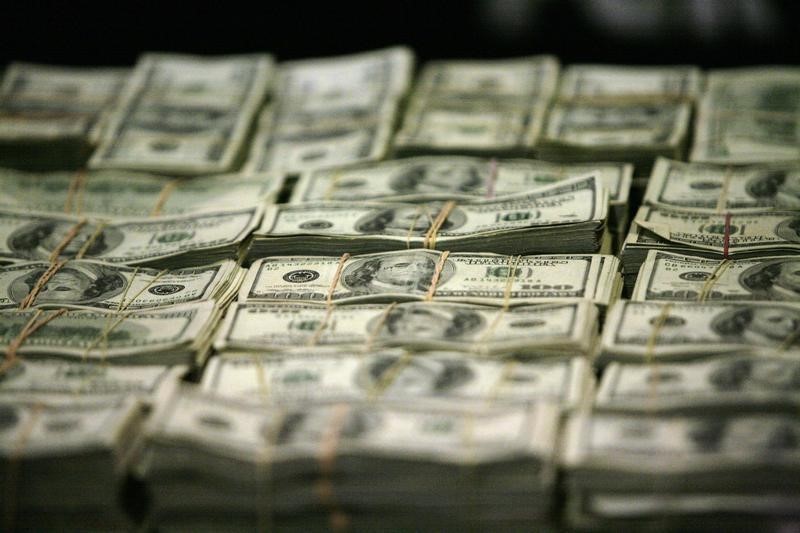Investing.com - The dollar erased gains against the other major currencies on Wednesday, pulling away from a three-week high after data showed that U.S. new home sales dropped far more-than-expected in January.
USD/JPY retreated 0.87% to 111.11.
The U.S. Commerce Department said new home sales dropped by 9.2% to 494,000 units last month, compared to expectations for a decline of 4.4% to 520,000.
New home sales in December were revised down to an 8.2% increase, from a previously estimated 10.8% gain.
The dollar found some support after Richmond Federal Reserve President Jeffrey Lacker said on Wednesday that the case for a rate hike was bolstered by recent data and that the U.S. central bank should concentrate on fostering economic growth via its control of inflation.
The comments came after Fed Vice-Chairman Stanley Fischer said that Fed officials " simply do not know" what course of action they will take at their next meeting in March.
Meanwhile, demand for the safe-haven yen remained supported as oil prices slipped below $32 a barel on Wednesday after Saudi Arabia’s oil minister said that production cuts "will not happen".
Separately, Iran also said it had no interest in reducing production after international sanctions against it were lifted, calling a joint Russian/Saudi proposal for major exporters to freeze output "laughable".
The dollar was higher against the pound, with GBP/USD down 0.55% at 1.3944, falling below $1.40 for the first time since March 2009.
Sterling remained under pressure amid fears over the impact on the economy if the outcome of the June 23 referendum leads to a “Brexit”.
The pound has now lost 3.4% so far this week after Britain’s Prime Minister David Cameron announced that a referendum on EU membership will take place on June 23.
Several senior members of his Conservative party, including London Mayor Boris Johnson, have said they will be backing the campaign to leave the EU, in a blow to the prime ministers plans to remain in the bloc.
Cabinet ministers continued to clash over the referendum on Wednesday, after Justice Secretary Michael Gove said a new deal agreed between Britain and Brussels to keep Britain in the EU is not legally binding.
The dollar was turned lower against the euro, with EUR/USD up 0.15% to 1.1035.
Elsewhere, USD/CHF slid 0.46% to trade at 0.9867.
Meanwhile, the Australian and New Zealand dollars remained weaker, with AUD/USD down 0.35% at 0.7180 and with NZD/USD slipping 0.15% to 0.6634.
USD/CAD held steady at 1.3797, after hitting highs of 1.3859 earlier in the day.
The U.S. dollar index, which measures the greenback’s strength against a trade-weighted basket of six major currencies, was steady at 97.40, off three-week highs of 97.92 earlier in the session.
